All India Rank Review: Bodhisattva Sharma is the irrepressible soul of Varun Grover’s sparkling debut feature
The writer-lyricist delivers an enormously amiable ode to nostalgia
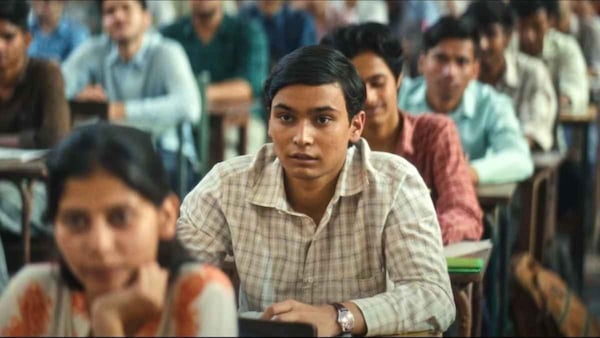
Last Updated: 07.04 PM, May 10, 2024
Story: Set in the late 1990s, Vivek (Bodhisattva Sharma) is shipped off from Lucknow all the way to Kota to prepare for the IIT entrance exam and fulfil his father’s aspirations. He is shy and initially guarded in making new relationships. The film traces his journey through uncertainties about himself and how he wishes to steer his life, burdened by a need for control and discipline.
Review: The year is 1997, and we are ushered into the world of Varun Grover’s debut feature, that opts for unflagging charm and a mostly sunny humour, as it wades into all the anxieties attendant to the IIT grind it pivots on. The narrator, the 17-year-old Vivek, is aware of him being the archetypal representee of millions of Indian youths as he wryly comments how they are being groomed for IIT coaching is akin to enlisting for a war. The scale and the obviousness of it as a rite of passage for many is staggering. Of course, he is shouldering the dream of every Indian parent. Through Vivek and his achievements, his father RK Singh (Shashi Bhushan), a telecom officer with a modest income, seeks to wrestle back control over his own life.
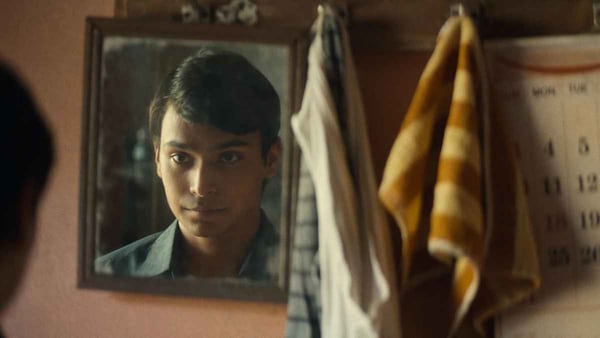
Vivek is also keenly cognisant of his generation’s particular location in India’s socio-political history, the contours of which are being dramatically reshaped by liberalisation. For the 90s kids, there are enough keepsakes from the time filling the frame, including the introductory animated credits, all meticulously woven in by production designer Prachi Deshpande, enough to render a rush of misty-eyed nostalgia. The satellite boom has pushed the country into steep consumerism. People are left wanting more. Middle-class parents have saddled their kids with the bigger burden of hauling them above their middle-class anxieties, and the annoyances of tediously negotiating an archaic public administration. India is on the cusp of her fiftieth year of independence, jostling to surge forward on the global stage even while her systems and her young populace are uniquely at odds. Vivek mourns this while demanding why he couldn’t just enrol at his state university in Lucknow instead of being towed all the way to Kota. As he whines in his narration, his father didn’t have to, so why must he? His father got the idea of sending him down the IIT rabbit hole only under the influence from watching his co-worker’s son choose that route. This is near-parable to the regular Indian household, with a neighbour/relative/colleague’s child held as a towering metric against which the parent relentlessly pits their own.
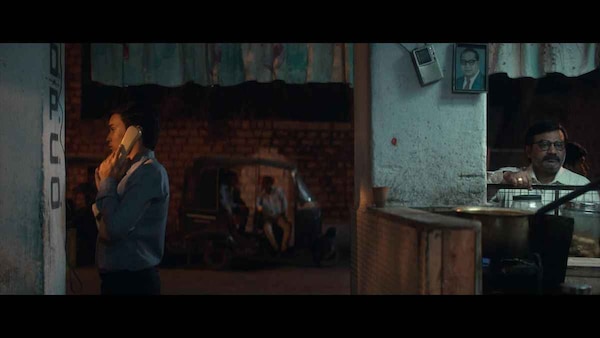
This is a film with its concentrated attention not on what all goes down once you crack the IIT entrance and thereafter, but the run-up to what is hailed and worshipped as the definitive exam of a lifetime. The witty, light-footed screenplay describes the prep school in Kota as the “coaching ka Haridwar”. The city and its coaching centres are very much their own juggernaut, a litmus test for the scores of beady-eyed aspirants dutifully trooping in for counsel as well as serving as a bitter, punishing reality check offering a wider perspective on one’s standing beyond the local.
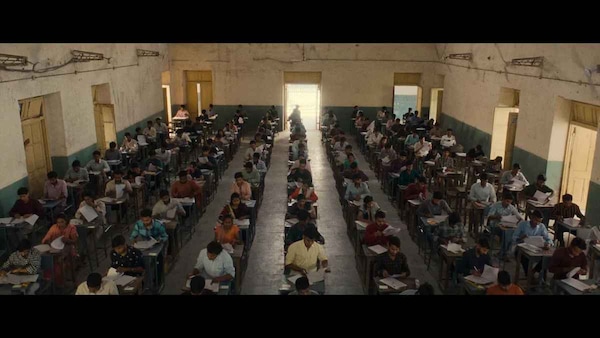
Grover, an IIT graduate himself, naturally knows this terrain like the back of his hand. Admittedly, All India Rank goes through all the motions of the standard-issue drama set in such spaces that we have grown so familiar with. The triumph of Grover’s telling is in how he straddles those templates, tropes and registers of narration with a characteristic elegance, economy and an eye that boldly wanders through all the dense, revealing implications branching out from such recognisable terrain. As a refreshing change, the characters and the choices they make are established in a way that stresses how much the milieu informs those.
All India Rank is carried by the undeniably effervescent freshness of its lead actor who is clearly poised to be a breakthrough. Bodhisattva Sharma brings on high-beam charm. Gawky, shy and sweet, his well-mannered and delightful presence pops off the screen in even the most customary scenes. It is an understated miracle of a performance, particularly with how Sharma hones his body language, giving a rich glimpse of his perceptiveness that maps both the physical and emotional. Watch him in the smaller moments of a sudden romantic confession or when Vivek is asked something presumably he has never been. In his hands, the galvanising weight of such moments comes thrillingly alive; how his eyes light up is a sight to behold. The way in which Sharma taps Vivek’s untouched naivete and quietly builds the character lends the film its beating heart.
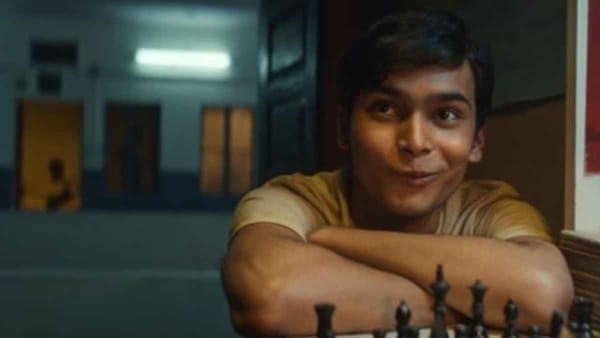
Grover’s screenplay leans especially into such tiny moments that punctuate the everyday, a scattering of moments heaving with realisation of betrayal, the jitters of first love or a subtle but strong burst of an epiphany amidst the mundane. Vivek’s voiceover does veer at times into the over-explicatory, underlining where a featherlight touch would have worked wonders yet Grover is blessed to have assembled a stunning cast across the board who cautiously rein in the film from treading jaded ground. While the emotional beats of the film make it easy to keel over into the maudlin, the actors consistently enliven the material, giving it a necessary zinger-like pulse. Even though the film largely unspools around Sharma, it concedes vibrant space to others as well, allowing them to bloom. Samta Sudiksha is terrific in imbuing a strength of resolve and a quiet intelligence to Sarika, the girl Vivek is drawn to, giving her this incredible expansiveness.
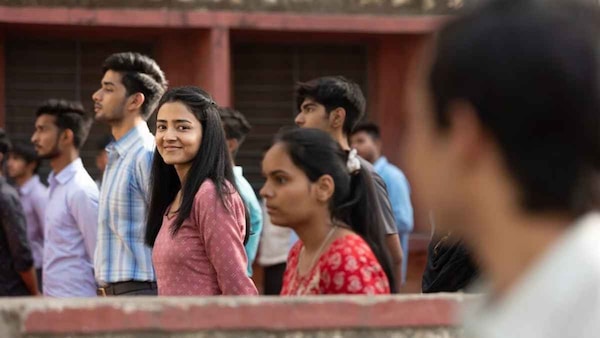
Importantly and winningly, Grover also keeps circling back to Vivek’s parents. His film is equally invested in their journeys as well as it is in Vivek’s coming of age; set against the country’s nascent but growing pop culture vocabulary inflecting everyday life is also a smart and telling look into repression. Shashi Bhushan and Geeta Aggarwal are absolutely wonderful, effortlessly conveying a lived-in history together and making a strong case for one of the most endearing screen couples.
Control is crucial to this film and how Vivek arrives at his own understanding of it ties it all together. There are no rough edges in this film; instead it has a gentle, gliding quality, the softness in the textures spills over into the rip-roaringly lively songs (Aditi Paul’s instant classic, Noodle Sa Dil and the hostel anthem, Sab Acchi Baatein, standouts in Mayukh-Mainak’s infectiously memorable album).
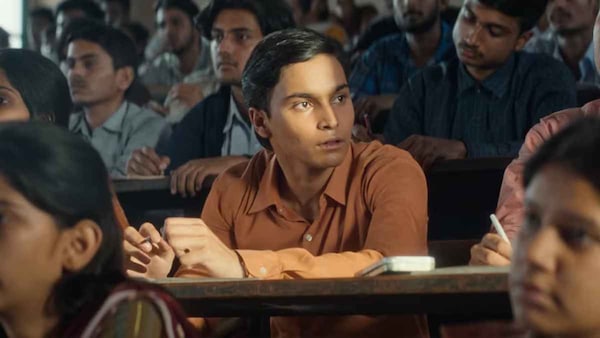
There are some strands and subplots that overstay its course and rankle, including the mandatory dose of tragedy that feels too oddly rushed to achieve maximum impact. But Sanyukta Kaza’s editing ensures the film trot along at a brisk, breezy pace while Archana Ghangrekar’s cinematography is luminously and vividly alert to the slightest shifts in the emotional canvas as it is to the intricacies of a bygone time evoked with such loving attention and care.
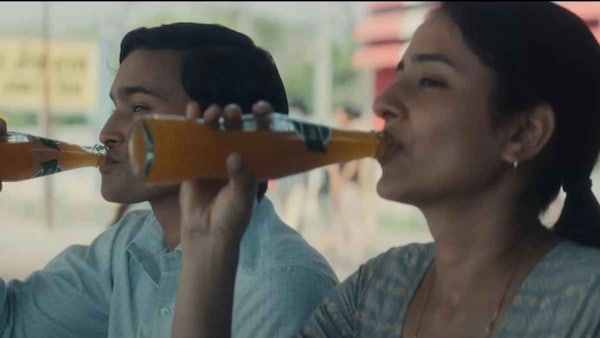
Verdict: Sharply sidestepping the sentimental trap, All India Rank is rooted and particular to a specific time and place. Yet it manages to cull resonances for what it is like to inhabit and go through a certain moment. Varun Grover succeeds in zeroing in on the most intimate spaces and the flicker of a deepening impression, while keeping the dizzying, bustling macrocosm ever-present.
WHERE
TO WATCH
Subscribe to our newsletter for top content, delivered fast.

